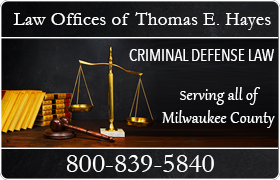Milwaukee Juvenile Law Lawyer, Wisconsin
Sponsored Law Firm
-
 x
x

Click For More Info:
-
Law Offices of Thomas E. Hayes
161 W Wisconsin Ave Suite 3032 Milwaukee, WI 53203» view mapMilwaukee County Criminal Defense Over 30 Years of Experience
Clients should be comfortable with their lawyer. I am the only one who "works" my cases. My work ethic is efficient result oriented.
800-839-5840
Paul Bucher
✓ VERIFIEDAccident & Injury, Criminal, Juvenile Law, Estate Planning, Trusts
Over 100 years of combined experience at firm.
Mr. Bucher has been practicing law in Wisconsin since 1981. His area of practice includes complex litigation, criminal defense, personal injury, gover... (more)
Peter M. Wolff
Criminal, Divorce & Family Law, Juvenile Law, DUI-DWI, Estate Planning
We Fight For The Rights Of Our Clients
Attorney Peter M. Wolff is a managing partner at Bucher, Wolff & Sonderhouse, LLP that focuses on criminal defense and family law. Before Peter was a ... (more)

 Thomas Hayes Milwaukee, WI
Thomas Hayes Milwaukee, WI Contact UsRequest Consultation Now
Contact UsRequest Consultation Now Law OfficeLaw Offices of Thomas E. Hayes
Law OfficeLaw Offices of Thomas E. Hayes


